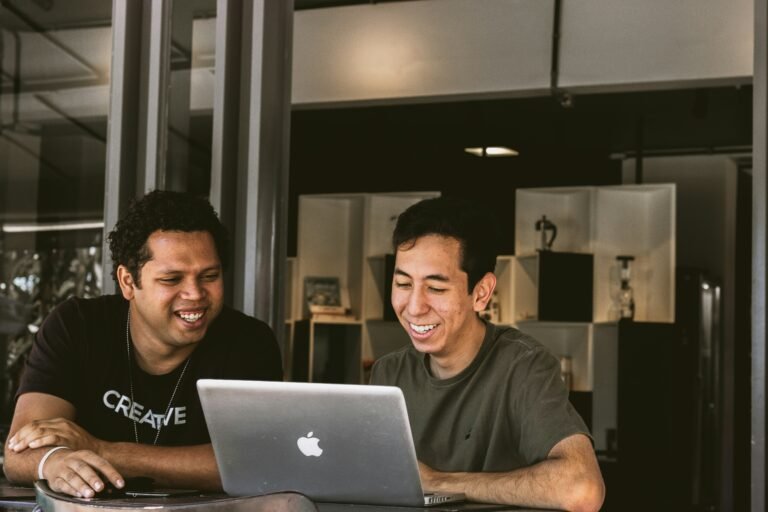Welcome to the Gen Z Workforce Revolution. Walk into any modern office, or log into any hybrid workspace and you’ll start to notice a shift. The way people talk, collaborate, expect feedback, and even dress at work is changing. Behind much of that evolution? Gen Z, and they are reshaping the future of work.
Born between the mid-1990s and early 2010s, this is the first generation that grew up with smartphones, grew into social media, and has now entered the workforce with expectations and habits that look radically different from previous generations.
Who Is Gen Z and Why Should You Care?
Gen Zs are digital-first, diversity-driven, and don’t mind breaking the mold. But more than that, they’ve become one of the fastest-growing segments of the workforce, expected to make up over a quarter of the global workforce this year.
If you’re an employer brand specialist or recruitment marketer, you can’t afford to ignore this talent segment. Understanding how to attract, engage, and retain Gen Z talent will soon become business-critical.
5 Big Ways Gen Z Is Changing How We Work
1. They Value Purpose Over Perks
Sure, healthy snacks and ping pong tables sound cool, but Gen Z is looking for something deeper. They’re mission-driven. They want work that means something.
In fact, Deloitte’s 2024 Gen Z and Millennials Survey found that 44% of Gen Z respondents have turned down an employer based on their personal ethics and values.
This doesn’t mean cutting all perks, but it does mean your employer value proposition (EVP) needs to be more purpose-centric. Highlight your social impact, sustainability efforts, and how employees are empowered to make a difference.
2. Diversity, Equity, and Inclusion Are Non-Negotiable
For Gen Z, DEI in hiring isn’t a “nice to have”, it’s expected. They want inclusive workplaces where different backgrounds are celebrated, where people feel like they belong.
If your employer brand doesn’t reflect genuine DEI efforts, both in your messaging and in your actual workplace practices, this generation will notice.
Are your career pages showing real diversity in visuals and stories? Are you tracking diversity metrics in hiring funnels? If not, these are areas to prioritize.
3. Flexibility Is the New 9-to-5
Forget rigid schedules and corner offices, Gen Z wants flexibility. That doesn’t just mean remote work; it includes flexible hours, job-sharing arrangements, and the freedom to work where they’re most productive.
For employer branding and recruitment marketing, this means showcasing flexible policies in job ads, employee testimonials, and recruitment videos. Show (not just tell) how flexibility comes to life in your company culture.
4. Digital Communication Is the Norm
This generation grew up on TikTok and Discord, not phone calls and long meetings. They prefer asynchronous updates, quick feedback, and engaging visual content.
Looking to reach Gen Z talent through recruitment marketing? Think short-form videos, interactive social posts, and communication that feels authentic, not corporate.
Text-heavy job descriptions won’t cut it. Instead, use human-centered language, real employee stories, and platforms like Instagram, YouTube Shorts, and TikTok to connect and engage.
5. They Expect Growth Fast
If you think Gen Z has a short attention span, try thinking of it as a “growth attention span.”
They’re not jumping jobs because they’re flaky. They’re moving quickly because they crave development. They want to learn new skills, build their careers, and have meaningful conversations about where they’re headed.
An internal communications strategy that promotes L&D opportunities, clear career pathways, and manager-led coaching will go a long way.
So, How Can You Win With Gen Z Talent?
Let’s break it down with a few actionable steps:
- Revisit your EVP with Gen Z in mind: Does it reflect today’s expectations of purpose, flexibility, and belonging?
- Keep DEI front and center: Showcase real employees. Measure and track progress. Don’t just talk about inclusion, prove it.
- Dial up your digital storytelling: Think employee stories on TikTok or behind-the-scenes videos on Reels. Show what it’s really like to work at your company.
- Create more personalised candidate experiences: Automated emails are fine, but handwritten LinkedIn messages or short, snappy voice memos resonate more.
- Offer fast, flexible development paths: Micro-learning, online certifications, rotational programs, don’t make them wait years for the next step.
Real-World Tension: When Gen Z Meets the Old Rules of Work
Right now, there’s a growing disconnect between what many companies are building, and what Gen Z is asking for.
As return-to-office mandates resurface and traditional expectations reassert themselves (think: fixed hours, face time, and rigid hierarchies), many Gen Z workers are left wondering, “Wasn’t work supposed to change?”
This isn’t just about remote work. It’s about values, communication styles, and how trust is built.
Some employers view Gen Z as impatient or entitled, asking for too much too soon. They argue that this generation should learn and “walk the talk” first, proving themselves before pushing for change.
But here’s the counterpoint: maybe the workplace isn’t a timeless institution. Maybe it’s just outdated. After all, many of its rules were built for a very different world, one with landlines, lifelong tenure, and clear boundaries between work and life.
Gen Z didn’t invent the problems in the workplace, they’re just less willing to tolerate them.
So who’s right?
Both sides have a point. Experience matters. But so does evolution. Instead of digging in our heels, maybe it’s time to meet in the middle.
It’s not about caving to every demand. It’s about co-creating a work culture that values fresh perspectives and proven wisdom. Where expectations are clear, but voices are heard. Where flexibility doesn’t mean chaos, and tradition doesn’t mean stagnation.
The Future of Work Isn’t in the Future. It’s Here.
If you’re building a forward-thinking employer brand or reimagining your recruitment strategy, Gen Z should be your north star. They’re redefining what work looks like: less hierarchy, more humanity. Less control, more choice. Less “clock in, clock out” and more “make an impact.”
And here’s the thing:
That’s not just good for Gen Z; it’s good for everyone.
Because when you build workplaces that prioritize wellbeing, purpose, belonging, and growth, you don’t just recruit Gen Z talent. You recruit the future.
So the question isn’t whether Gen Z is reshaping the future of work.
The question is: Are you ready for it?
For more information and insights on talent trends, visit the Talent Trends category page.
Looking for specific talent trends to help your business? Let’s talk.







